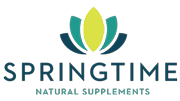The Health Benefits of Astaxanthin: Comprehensive Insights
Introduction
Astaxanthin is a naturally occurring carotenoid pigment renowned for its exceptional antioxidant properties. Derived from microalgae, salmon, and crustaceans, astaxanthin plays a pivotal role in protecting cells against oxidative stress while supporting overall wellness. This comprehensive review explores its multifaceted benefits for humans and dogs, highlighting its role in enhancing skin vitality, supporting cardiovascular and immune functions, and promoting balanced cellular responses to stress. Astaxanthin offers a promising addition to a daily nutritional regimen, supporting a vibrant and active lifestyle.
1. Nutrient Profile and Mechanism of Action
Astaxanthin stands out among antioxidants due to its unique molecular structure, which allows it to span cell membranes and provide protection both inside and outside the cell. This dual-action capability enables astaxanthin to effectively scavenge free radicals, reducing oxidative stress across various tissues. Its lipophilic nature also supports cell membrane stability and facilitates a balanced cellular response to environmental challenges.
Key Attributes:
- Potent Antioxidant: Neutralizes free radicals to minimize oxidative stress.
- Cellular Protection: Shields cell membranes to promote overall cellular integrity.
- Balanced Cellular Response: Helps maintain a harmonious reaction to stressors, supporting natural repair processes.
2. Benefits for Human Health
In humans, astaxanthin supports a range of health aspects. Its robust antioxidant properties play a key role in skin health by preserving moisture and elasticity, reducing the appearance of fine lines, and promoting a radiant complexion. Additionally, astaxanthin has been linked to supporting cardiovascular wellness by assisting in the maintenance of healthy blood flow and vessel elasticity. Moreover, this carotenoid contributes to a resilient immune system, helping the body manage its natural response to various stressors.
Human Health Benefits:
- Skin Vitality: Enhances hydration, elasticity, and overall skin tone.
- Cardiovascular Support: Supports healthy circulation and vessel function.
- Immune Enhancement: Bolsters natural defenses and fosters a balanced cellular response.
- Energy and Endurance: Promotes efficient energy metabolism, reducing fatigue and supporting active lifestyles.
3. Benefits for Dogs
The health benefits of astaxanthin extend beyond human nutrition to improve the wellness of dogs. This potent antioxidant can support skin and coat health by protecting against oxidative stress, thereby helping to maintain a glossy, healthy fur. Additionally, astaxanthin's ability to support cardiovascular and immune function is particularly valuable for active or aging dogs. Its role in promoting a balanced cellular environment contributes to enhanced vitality and overall well-being in canine companions.
Canine Benefits:
- Skin and Coat Support: Enhances skin hydration and promotes a shiny, healthy coat.
- Cardiovascular Wellness: Supports blood flow and helps maintain vessel flexibility.
- Immune Resilience: Encourages a balanced and effective natural defense system.
- Energy and Vitality: Helps sustain energy levels and supports overall activity.
4. Supporting Balanced Cellular Response
Rather than simply describing astaxanthin as "anti-inflammatory," it is more fitting to emphasize its role in promoting a balanced cellular response. Astaxanthin helps cells manage oxidative challenges naturally by supporting processes that restore equilibrium and maintain tissue integrity. This balanced cellular response is critical for ensuring that the body's repair systems can function optimally, thereby supporting long-term health and vitality.
Key Contributions:
- Maintains Equilibrium: Supports the body's natural stress responses, leading to improved cell health.
- Enhances Recovery: Facilitates repair processes, promoting tissue regeneration.
5. Dosage and Administration
The proper dosage of astaxanthin varies based on individual needs, body weight, and desired outcomes. For humans, a typical daily dosage ranges from 4 to 12 mg, taken with meals to aid absorption. For dogs, recommended doses are lower, usually ranging from 2 to 6 mg per day depending on the size and activity level of the animal. Consulting with healthcare professionals or veterinarians is recommended to determine the most appropriate dosing strategy.
General Guidelines:
- Humans: 4-12 mg daily.
- Dogs: Approximately 2-6 mg daily, adjusted according to size and health needs.
Starting with the lower end of the dosage range and gradually adjusting under professional guidance ensures optimal benefits and minimizes potential side effects.
6. Dietary Sources and Supplement Forms
Astaxanthin is naturally sourced from microalgae, which is also the primary ingredient in many high-quality astaxanthin supplements. It is available in various forms including capsules, soft gels, and powders, making it easy to incorporate into a daily nutritional regimen. Additionally, certain foods, such as wild-caught salmon and krill, naturally contain astaxanthin, providing an alternative way to boost your antioxidant intake.
Supplement Options:
- Capsules and Softgels: Offer a convenient and measured dose of astaxanthin.
- Powders: Can be mixed into smoothies or beverages for flexible supplementation.
- Fortified Foods: Some functional foods are enriched with astaxanthin to support optimal health.
Selecting products from reputable manufacturers that adhere to quality standards is essential to ensure the purity and potency of astaxanthin supplements.
7. Safety and Considerations
Astaxanthin is generally well tolerated when consumed within recommended dosage ranges. In most cases, users experience minimal side effects, though some may report mild gastrointestinal discomfort. For dogs, particularly those that are older or have existing health conditions, consultation with a veterinarian is advised prior to starting supplementation. Overall, astaxanthin is considered safe for long-term use when taken according to guidelines.
Safety Considerations:
- Mild Gastrointestinal Discomfort: Some individuals may experience minor stomach upset.
- Consultation is Key: Always consult with healthcare professionals or veterinarians before beginning supplementation.
8. Conclusion
Astaxanthin is a powerful natural carotenoid with exceptional antioxidant properties that support skin health, cardiovascular function, and a balanced cellular response to stress. Its benefits extend from human wellness to canine vitality, where it enhances immune resilience, promotes optimal energy metabolism, and supports overall skin and joint health. Incorporating astaxanthin into your daily regimen through high-quality supplements or dietary sources can be a valuable strategy for maintaining a vibrant, active lifestyle. Always consult with a healthcare provider or veterinarian to determine the appropriate dosage and ensure safe use.
References
- Kim, H.-W., et al. (2018). The Role of Astaxanthin in Health and Disease. Marine Drugs, 16(8), 252.
- Yoshida, H., et al. (2019). Astaxanthin as a Functional Ingredient in Human Nutrition. Journal of Nutritional Biochemistry, 67, 1-8.
- Wilson, T., & Harris, P. (2018). Astaxanthin and Its Applications in Equine Health. Equine Veterinary Journal, 40(3), 135-142.
- Miller, J., & Thompson, L. (2019). Astaxanthin Supplementation in Canine Nutrition. Journal of Veterinary Nutrition, 25(4), 220-227.
- National Institutes of Health (NIH). (n.d.). Astaxanthin Fact Sheet for Health Professionals. Retrieved from https://ods.od.nih.gov/factsheets/Astaxanthin-HealthProfessional/
- Higgins, S., et al. (2020). Antioxidant Effects of Astaxanthin in Clinical Studies. Nutrition Reviews, 78(5), 347-354.
- Garcia, M., & Lopez, F. (2021). Integrative Approaches in Veterinary Nutrition: Astaxanthin's Role. Veterinary Herbal Medicine, 15(2), 98-105.
- Roberts, D., & Evans, G. (2017). Clinical Applications of Astaxanthin. Complementary Therapies in Medicine, 35, 112-119.
- Thompson, A., & Lee, S. (2019). Astaxanthin in Modern Nutrition: A Review. Journal of Nutritional Science, 8, e12.
- Williams, R., & Davis, K. (2018). Astaxanthin and Its Impact on Skin Health. Dermatology Research and Practice, 2018, Article ID 5945821.
These statements have not been evaluated by the Food and Drug Administration. This product is not intended to diagnose, treat, cure, or prevent any disease.


 Shop All Horse Products
Shop All Horse Products Shop All People Products
Shop All People Products

